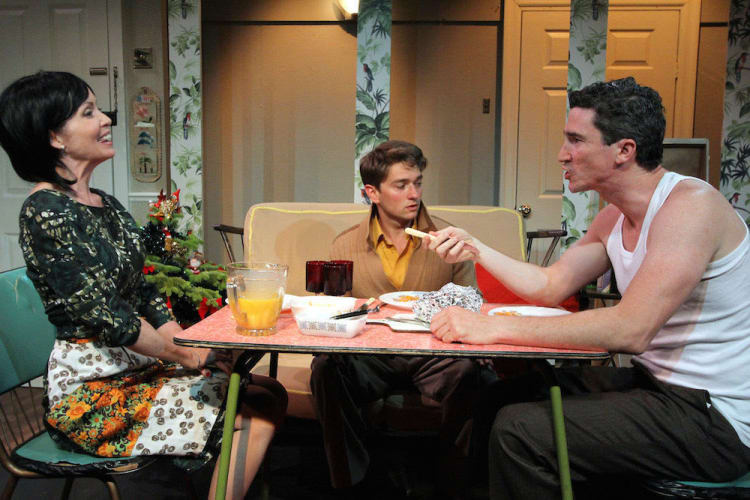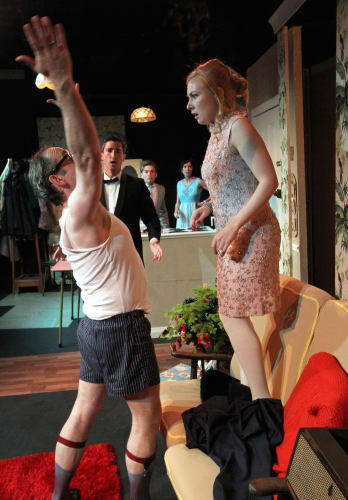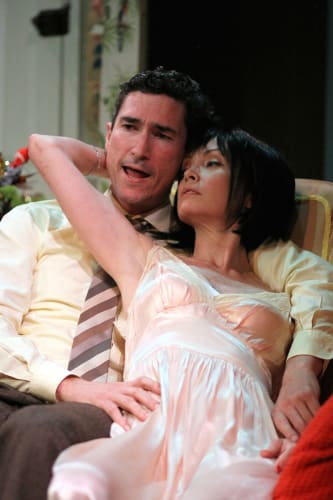William Inge is one of those neglected writers whose popularity has waned, at least in this country, for no obvious reason. This popular playwright's zenith probably came in the mid-1950s when two of his plays, and were filmed by Joshua Logan with big-name stars; the cast of Picnic was led by William Holden and Kim Novak and, a year later, Bus Stop featured Marilyn Monroe.
Natural Affection is kind of American Kitchen Sink drama written in 1962 at the time when that genre was all the rage on this side of the Atlantic, though the more American term Dirty Realism would have fitted the bill just as well, had it been coined at the time.
Tennessee Williams is also an influence, the throwaway reference to Sweet Bird of Youth surely far from a coincidence.
The play's protagonist is Sue Barker (now there's a name) played with great feeling under the direction of Grace Wessels by an appropriately sultry screen favourite Lysette Anthony.
Sue, a relatively successful Chicago businesswoman, has reached an age where she willingly supports unfaithful toy boy car salesman Timothy Knightley's Bernie, whose muscles are better developed than his career.
As she sees things, following a teenage pregnancy and instant desertion, life at 40 will be unbearable unless someone is around to keep her company. As such, all that it will take to make her happy is a wedding ring.
However, this is not that kind of play even though it is set amid yuletide festivities.
The unhappily married next door neighbours are hardly a better advertisement for The Great American Dream. Vince and Claire (Jonathan Wadey and Jessica Preddy), a generation younger, are a pair: he an unrepentant alcoholic, she a "party girl" with a roving eye.
Sue's son Donny has gone straight from an orphanage to the work farm (reform school) or, as he describes it, the cage. Now, the muscular boy's arrival presents a moral dilemma. If Sue and Bernie will look after the moody lad, he will escape the last year of a sentence that is visibly doing him harm. However, in a tiny apartment, their future might not stand his presence.
A series of torrid relationships develop, that between guilty mother and long-lost son Donny at times bordering on the incestuous.
By the end, every life under the playwright's microscope has changed irrevocably and none of those on view seems likely to live happily ever after.
The realism of this revival is considerably assisted by a thoroughly convincing design from Victoria Johnstone and the efforts of a cast well marshalled by their young director.
Grace Wessels and House on the Hill Productions are to be congratulated on bringing back William Inge to the London stage as a reminder that there was more to American drama 50 years ago than Tennessee Williams and Arthur Miller.


